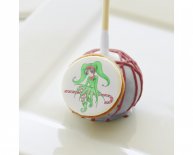
Australian culture Food
AUSTRALIANS LAY CLAIM to wonderful food creations, some more ingenious than others, yet our attachment to our Aussie food 'classics' suggests that it is the simpler things that take our fancy.
Whether at a family Christmas feast at the height of a scorching Australian summer or barracking at a local footy match in the depths of winter, Australians enjoy foods that suit our laid-back lifestyle. While the origins of many of our favourite Australian 'food groups' (e.g. the meat pie) lie elsewhere, we've proudly adopted many as our own.
Here are five sweet and five savoury Australian foods that will pluck at your Aussie heartstrings to remind you of days spent around the good old Australian backyard barbecue, lounging on the beach or simply the everyday.
1. Pavlova
Legend has it that, inspired by the Russian ballerina Anna Pavlova during her 1926 and 1929 tours of Australia, Western Australian chef Herbert Sachse of Perth's Hotel Esplanade created a desert recipe that was as light as the ballerina herself. With its wispy meringue base, smothered in a layer of freshly whipped cream and topped with fresh fruit and tangy passionfruit pulp, it's no wonder it has stayed firmly cemented in modern Australia's food culture. The origins of the 'Pav' are, however, disputed, and New Zealand has claimed that their cookbooks have older versions of the light, summer dessert. To this day, it remains one of the great bones of contention between us and our Kiwi cousins.
2. Chiko roll
Australia's love affair with the simple Chiko roll began back in 1951, when it made its NSW debut at the Wagga Wagga Agricultural Show. Frank McEnroe – a boilermaker from Bendigo, Vic. – invented the cabbage, carrot, onion and beef stuffed snack. He originally designed the Chiko roll as take-away food at football matches; the intent being to make a snack that could be held in one hand, the other hand would of course be occupied holding a cold beer. Belying its name, the Chiko Roll contains no chicken, and was inspired by the popular and much smaller Chinese spring roll, claimed by Chinese Australians as their own.
3. Meat pie
The great Aussie meat pie, though a cultural icon, was not developed here, but it has long held pride of place in the affections of Australians both young and old. First records of the Aussie meat pie come from early colonial days, when they were sold by vendors from street-carts – most famously by the Flying Pieman whose athletic feats are the stuff of legend. Nowadays meat pies are ubiquitous, found in sports club canteens, service stations and gourmet bakeries. The meat and gravy filled, flaky pastry case has earned its place in Australian culture, and the 'Official Great Aussie Pie Competition' has been a national event since 1990.
4. Splice
Introduced by Streets Ice Cream in the 1950s, Splices developed almost a cult following. The unconventional ice-cream, coated in a layer of fruit flavoured ice was an integral part of beach culture in summer, reaching peak popularity in the 1970-80s. Originally in 'pine-lime' flavour, a raspberry version was introduced later, and is still enjoyed by Aussies today. The catchphrase of Streets' 1963 advertising campaign was: "You'll jump for joy, it tastes so nice, it's Streets' sensational, raspberry Splice!"
5. Lamingtons
There are many versions of the lamington's origin, and it is still in dispute whether it was in Australia or New Zealand that sponge cake was first dipped in chocolate icing and rolled in desiccated coconut. One legend has it that Lord Lamington of Queensland was served the treat by his personal chef in 1900. Upon tasting this new delicacy, he requested it be named after him. Today the lamington can be found in every true-blue Australian bakery and features in almost every CWA (Country Women's Association) recipe book, where it may well have first appeared - in times when waste was frowned upon - as a way of using up imperfect or stale sponge cake.
6. Vegemite
In 1922 businessman Fred Walker commissioned a young chemist, Cyril Callister, to develop a spread from used brewer's yeast – that would have otherwise been dumped – a naturally high source of vitamin B. The unlikely product was named 'Vegemite', a name drawn from a hat after being submitted in a national naming competition, and marketed by Walker as "delicious on sandwiches and toast, and improving the flavours of soups, stews and gravies". Since then Australians have developed an almost jingoistic attachment to their breakfast and sandwich spread, and still sing along to 'Happy Little Vegemites', an advertising jingle first heard on the wireless in 1954. Since then many curious combinations have emerged: Vegemite-cheese sandwiches, Vegemite and avocado on toast, Vegemite pizza, and, in Tasmania, Vegemite scrolls.

















